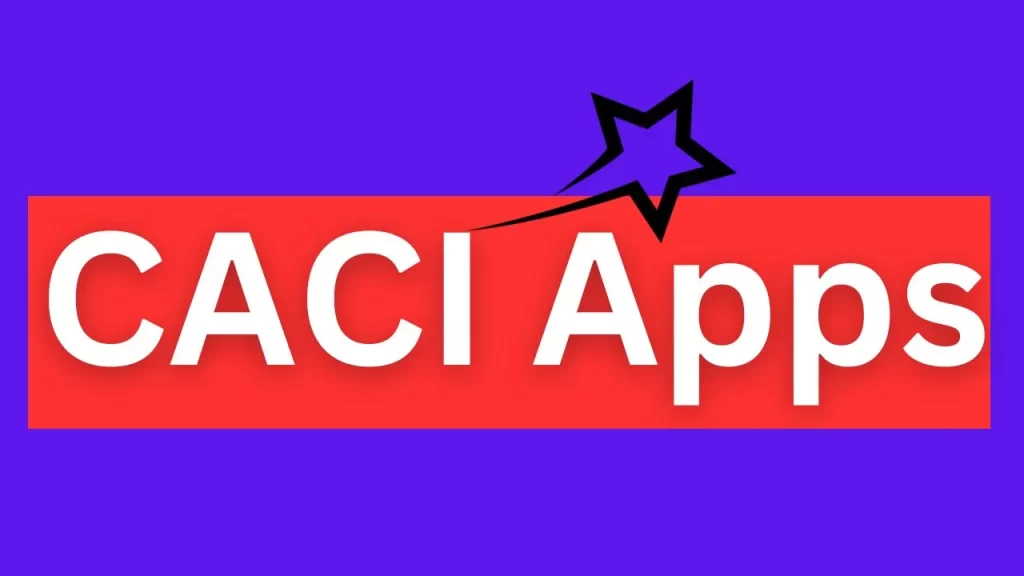Navigating the complexities of health insurance can be daunting, but understanding how to maximize your benefits is essential for both your health and your wallet. In this ultimate guide, we’ll explore everything you need to know to unlock the full potential of your health insurance coverage. From deciphering insurance jargon to leveraging preventative care services, this guide will empower you to make informed decisions about your healthcare. So let’s dive in and discover how to make the most of your health insurance benefits.
The Ultimate Guide to Maximizing Your Health Insurance Benefits
Understanding Your Health Insurance Plan
Health insurance plans can vary widely in terms of coverage, costs, and network providers. To maximize your benefits, start by thoroughly understanding your plan. Review your policy documents to grasp key details such as deductibles, copayments, and coinsurance percentages. To prevent unforeseen out-of-pocket costs, familiarize yourself with the network of providers and facilities covered by your plan.
Review Your Policy Documents
Take the time to carefully read through your health insurance policy documents. Pay close attention to important details such as:
- Deductible: The amount of money you have to fork over before your insurance begins to pay for expenses.
- Copayments: Fixed amounts you pay for certain services, such as doctor visits or prescriptions.
- Coinsurance: Your share of the costs for covered services, usually calculated as a percentage after meeting your deductible.
- Out-of-pocket maximum: The most you’ll have to pay for covered services in a policy period (usually a year) before your insurance covers 100% of the costs.
- Coverage limits: Any caps on specific services or types of care.
Understand Network Providers
Most health insurance plans have a network of preferred providers, including doctors, hospitals, and other healthcare facilities.
- Which providers are in-network and out-of-network?
- Whether you need referrals or prior authorization for certain services.
- How to find in-network providers, such as through your insurer’s website or customer service.
Know Your Benefits and Services: Familiarize yourself with the range of services and benefits covered by your plan. This includes preventive care, prescription drugs, specialist visits, emergency care, and more. Being aware of what is and isn’t covered can help you prevent unforeseen costs.
Explore Additional Benefits: Some health insurance plans offer additional benefits beyond basic medical coverage, such as dental, vision, mental health, or wellness programs. Take advantage of these benefits if they are included in your plan.
Stay Informed About Costs: Be aware of the costs associated with your health insurance plan, including premiums, deductibles, copayments, and coinsurance. Consider how these costs fit into your budget and healthcare needs.
Ask Questions: If you’re unsure about any aspect of your health insurance coverage, don’t hesitate to reach out to your insurance provider or employer’s benefits administrator for clarification. It’s essential to have a clear understanding of your coverage to make informed decisions about your healthcare.
By understanding your health insurance plan thoroughly, you can make more informed decisions about your healthcare, minimize out-of-pocket expenses, and ensure you receive the necessary care when you need it.
Navigating Insurance Terminology
Insurance terminology can be perplexing, but mastering key terms is crucial for optimizing your benefits. Familiarize yourself with terms like premiums, out-of-pocket maximums, and prior authorization to confidently navigate your coverage. Understanding these terms will empower you to make informed decisions about your healthcare and minimize unexpected costs.
- Premiums: This refers to the amount you pay for your insurance coverage, typically on a monthly basis. It’s critical to make on-time premium payments in order to keep your coverage active.
- Out-of-Pocket Maximum: This is the most you’ll have to pay for covered services in a plan year. Once you reach this limit, your insurance company will typically cover 100% of the cost of covered services for the rest of the year. It’s crucial to know this limit to budget for potential healthcare expenses.
- Co-payment (Co-pay): This is a fixed amount you pay for covered healthcare services at the time of the visit. For example, you might have a $20 co-pay for doctor visits or a $10 co-pay for prescriptions.
- Co-insurance: This is the percentage of costs of a covered healthcare service you pay after you’ve paid your deductible. For instance, if your plan has a 20% co-insurance for hospital stays and the total bill is $1,000, you would pay $200, and your insurance would cover the remaining $800.
- Prior Authorization: Some insurance plans require prior authorization before they’ll cover certain services, procedures, or medications. This means your doctor must get approval from your insurance company before providing the service or medication to ensure it’s medically necessary.
- In-network vs. Out-of-network: In-network refers to healthcare providers, facilities, or pharmacies that have contracted with your insurance company to provide services at negotiated rates. Out-of-network refers to providers that haven’t contracted with your insurance company, and using them may result in higher out-of-pocket costs for you.
-
Exclusions
These are services or items that are not covered by your insurance plan. It’s important to review your plan’s exclusions to understand what won’t be covered.
By familiarizing yourself with these terms and understanding how they apply to your insurance coverage, you can make more informed decisions about your healthcare and avoid unexpected costs. If you ever have questions about specific terms or your coverage, don’t hesitate to reach out to your insurance provider for clarification.
Leveraging Preventative Care Services
Preventative care is the cornerstone of maintaining good health and can ultimately save you money by identifying health issues early. Take advantage of your health insurance’s preventative care services, which often include routine check-ups, vaccinations, and screenings. By staying proactive about your health, you can detect potential issues before they escalate, ultimately reducing healthcare costs in the long run.
Maximizing Prescription Drug Coverage
Prescription medications can constitute a significant portion of healthcare expenses, but many insurance plans offer coverage for prescription drugs. To maximize this benefit, familiarize yourself with your plan’s formulary – a list of covered medications – and any associated copayments or coinsurance. Additionally, consider utilizing mail-order pharmacies or generic alternatives to further reduce costs.
Exploring Additional Benefits and Programs
Beyond standard medical coverage, many health insurance plans offer additional benefits and wellness programs. These may include discounts on gym memberships, smoking cessation programs, or telemedicine services. Explore your plan’s offerings to take advantage of these valuable resources and support services, which can contribute to both your physical and financial well-being.
Managing Healthcare Costs Wisely
Healthcare expenses can quickly add up, but there are strategies to mitigate costs and maximize value. Consider utilizing in-network providers whenever possible to avoid out-of-network fees, and always inquire about the cost of services before receiving care. Additionally, take advantage of flexible spending accounts (FSAs) or health savings accounts (HSAs) to set aside pre-tax dollars for medical expenses, providing a valuable financial cushion.
Advocating for Your Health
As a healthcare consumer, you have the right to advocate for yourself and ensure you receive the care you need. Don’t hesitate to ask questions, seek second opinions, or challenge denied claims. Understanding your rights and actively engaging in your healthcare decisions can lead to better outcomes and ensure you receive the full benefits to which you’re entitled.
Frequently Asked Questions
How do I know what my health insurance plan covers?
Understanding your health insurance coverage begins with reviewing your policy documents, including the summary of benefits and coverage provided by your insurer. Additionally, you can contact your insurance company directly or utilize online portals to access detailed information about your plan’s coverage and benefits.
What should I do if my health insurance claim is denied?
If your health insurance claim is denied, don’t panic. Start by reviewing the explanation of benefits provided by your insurer to understand the reason for the denial. In many cases, denials can be appealed by providing additional documentation or clarifying information. If necessary, seek assistance from your healthcare provider or a patient advocacy organization to navigate the appeals process effectively.
Can I change my health insurance plan outside of the open enrollment period?
In some circumstances, you may be eligible to change your health insurance plan outside of the annual open enrollment period. Qualifying life events such as marriage, divorce, the birth of a child, or the loss of other coverage may trigger a special enrollment period, allowing you to make changes to your coverage outside of the regular enrollment window.
Are there resources available to help me understand my health insurance options?
Yes, there are numerous resources available to help you navigate the complexities of health insurance. Government websites such as Healthcare.gov provide valuable information about health insurance options, enrollment periods, and subsidies for eligible individuals. Additionally, insurance brokers or agents can offer personalized guidance and assistance in selecting the right plan for your needs.
What should I do if I’m struggling to afford my health insurance premiums?
If you’re facing financial difficulties and struggling to afford your health insurance premiums, explore options for financial assistance or subsidy programs. Depending on your income level and eligibility criteria, you may qualify for Medicaid, the Children’s Health Insurance Program (CHIP), or premium tax credits through the Health Insurance Marketplace. Additionally, consider adjusting your coverage options or exploring alternative plans with lower premiums.
How can I ensure my health insurance information remains secure and protected?
Protecting your health insurance information is essential to safeguarding your personal and financial privacy. To maintain security, avoid sharing sensitive information such as your insurance ID number or social security number with unauthorized individuals or websites. Be cautious when disclosing personal information online and regularly monitor your insurance statements and claims for any unauthorized activity.
Conclusion
Maximizing your health insurance benefits is not only about understanding your coverage but also about actively engaging in your healthcare decisions. By familiarizing yourself with your plan, leveraging preventative care services, and advocating for your health, you can optimize your coverage and ensure both your physical and financial well-being. Remember, your health insurance benefits are a valuable resource – make the most of them to live a healthier, happier life.



